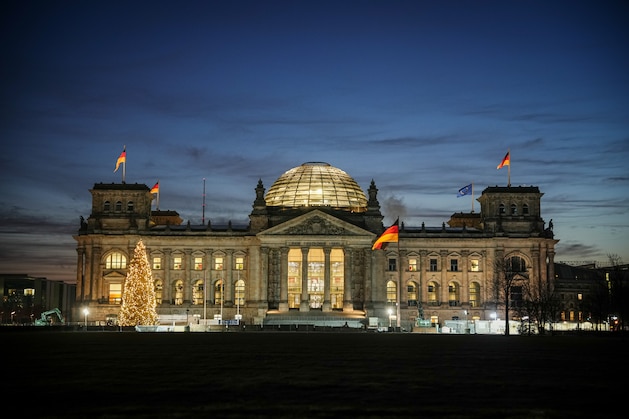Trust in political institutions in Germany has fallen sharply compared to the previous year. Chancellor Olaf Scholz, in particular, does not fare particularly well in the current trend barometer.
The current RTL/ntv trend barometer shows a drastic slump in trust in all ten political institutions surveyed in Germany. In the forsa institutions trust ranking, which has been carried out for 15 years, the greatest decline in trust can be observed in the two executive institutions at federal level – the Federal Chancellor (33%) and the Federal Government (34%) – with a minus of 24 and 22 percentage points respectively.
Trust in political institutions at the turn of the year 2022/23 in percent*
*Change in brackets compared to the turn of the year 2021/22 (percentage points)
The Bundestag (37%), the Federal President (63%) and the mayor (44%) recorded a decline of more than 10 percentage points. At the turn of the year 2022/23, the state governments (46%), the municipal councils (43%) and the city and municipal administrations (43%) each showed a 9 percentage point lower level of trust. The decline in trust is somewhat smaller, with 7 percentage points each for the European Union (31%) and the political parties (17%).
At the turn of the year 2022/23 – as in all previous years – the Federal President (63%) has the greatest trust from the political institutions. A comparison with the level of trust that Angela Merkel received at the turn of the year 2020/21 at the peak of the Corona wave at the time shows how drastically trust in the institution of the “Federal Chancellor” has fallen: At that time, 75 percent had great trust in the Chancellor. At the turn of the year 2021/22, 57 percent still had great trust in their successor Olaf Scholz.
At the turn of the year 2022/23, trust in political institutions in the new and old federal states also differed. With the exception of institutions at the local level (municipality council: 44%), East Germans have less trust in other political institutions than West Germans. The difference between East and West is particularly large when it comes to trust in the Federal President (East: 53%; West: 65%) and in the European Union (East: 20%; West: 33%).
However, there are also clear differences in the degree of trust in political institutions between the supporters of the individual parties, especially between the governing parties. Above all, the supporters of the Greens and the FDP have less trust in the chancellor, the federal government and also the Bundestag than the supporters of the third “traffic light” party, the SPD.
As in previous years, supporters of the AfD have by far the least trust in all political institutions. Only 2 or 3 out of 100 AfD supporters trust the chancellor, the federal government, the Bundestag or the European Union.
Christine Lambrecht’s New Year’s Eve video shows how instinctively the defense minister acts. Instead of finally getting problems in the Bundeswehr under control, Chancellor Scholz gradually makes them look like a “turning point”. Anyone who begs to be kicked out like this should be heard.
Gasoline and diesel prices have fallen by more than 30 cents per liter since October. There are four reasons why this trend will continue in 2023.








